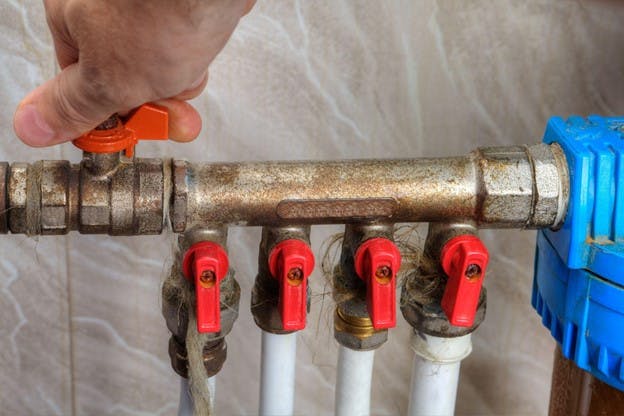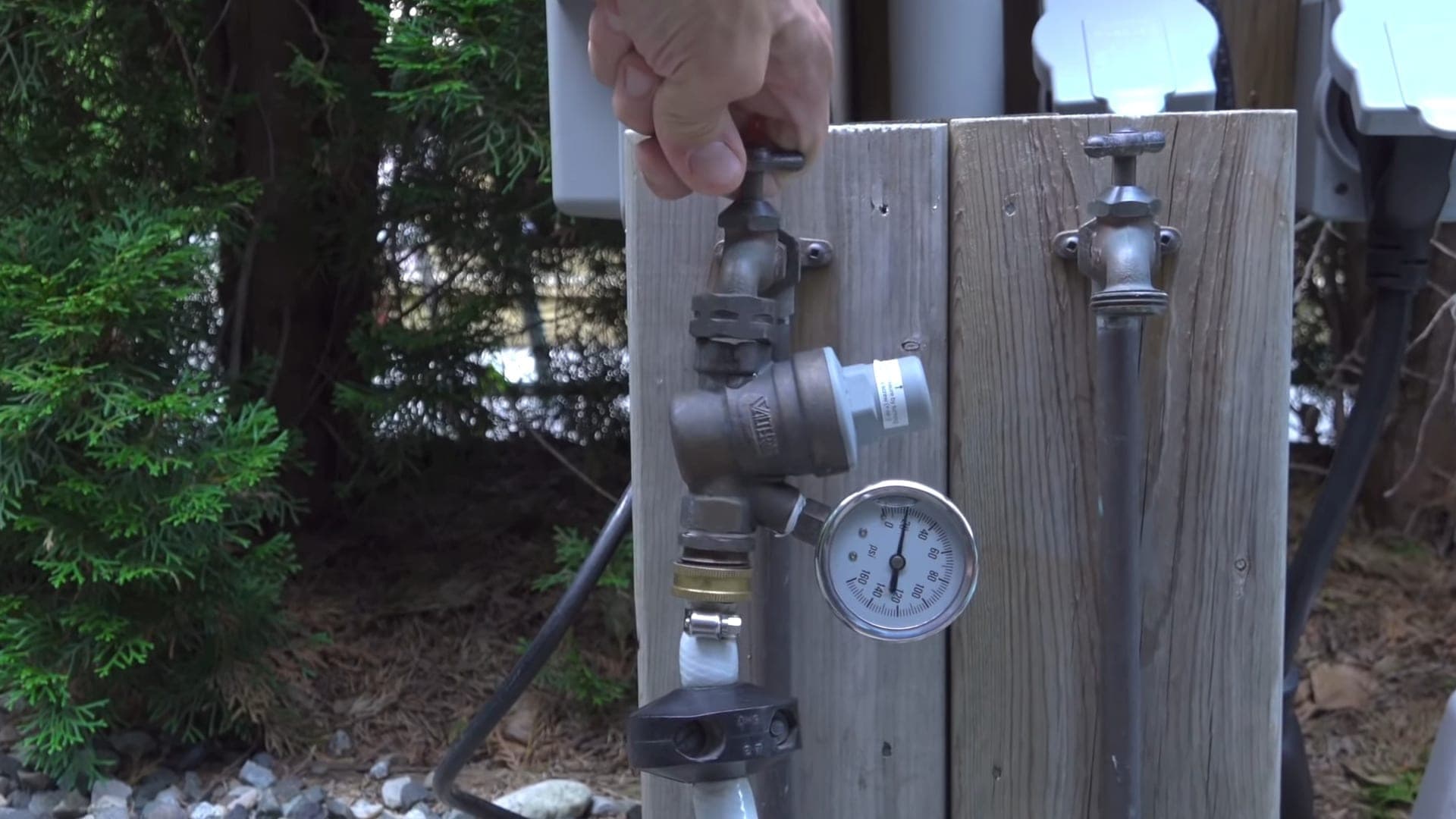Useful Tactics for Overcoming Low Water Pressure in Your Home
Useful Tactics for Overcoming Low Water Pressure in Your Home
Blog Article
We have stumbled upon this article pertaining to Low Water Pressure in the House? down the page on the web and believe it made sense to discuss it with you on this site.

Low water stress in your house can be an aggravating trouble, influencing everything from showering to cleaning recipes. If you're experiencing weak water flow, there are numerous feasible causes and solutions to explore. In this guide, we'll review typical reasons for low water pressure and useful steps to deal with the issue successfully.
Intro to Low Water Pressure
Low tide stress occurs when the circulation of water from your faucets, showers, and various other components is weaker than typical. This can make daily tasks more difficult and much less efficient. Comprehending the sources of low water stress is vital to finding the right solution.
Common Causes of Low Tide Stress
Faulty Pressure Regulatory Authorities
Stress regulators are responsible for maintaining consistent water stress in your house. If they malfunction, it can lead to low tide pressure or uneven circulation throughout the house.
Local Water Supply Issues
In some cases, the problem lies outside your home. Local water system issues, such as main line leakages or maintenance work, can momentarily lower water pressure in your location.
Pipe Obstructions
Gradually, pipelines can end up being blocked with mineral deposits, sediment, or particles, limiting the circulation of water. This is a common problem in older homes with galvanized steel pipelines.
Rust
Deterioration within pipes can bring about leakages and reduced water pressure. Rust buildup can tighten water circulation, particularly in maturing plumbing systems.
Exactly How to Diagnose Low Tide Pressure
Checking Pipelines
Evaluate noticeable pipes for signs of leakages, corrosion, or obstructions. Take note of any unusual sounds, such as knocking or rattling pipes, which could suggest issues within the plumbing system.
Consulting with a Plumber
If you're not able to pinpoint the reason for low water stress, think about employing an expert plumber to perform a thorough evaluation. They can recognize underlying issues and advise appropriate solutions.
Inspecting Faucets and Fixtures
Beginning by examining the water pressure at various taps and fixtures throughout your home. If the issue is separated to details areas, it may suggest local troubles.
DIY Solutions to Deal With Low Water Pressure
Flushing Hot Water Heater
Sediment accumulation in the water heater can restrict circulation and lower effectiveness. Purging the tank occasionally assists get rid of sediment and keep optimum efficiency.
Checking Pressure Regulator
Make sure that the stress regulator is operating appropriately. Changing or changing the regulatory authority can help recover appropriate water stress throughout your home.
Cleaning Up Aerators and Showerheads
Natural resources can gather in aerators and showerheads, decreasing water flow. Remove and clean these parts on a regular basis to improve water stress.
Clearing Up Clogs in Piping
For small clogs, try utilizing a plumbing snake or chemical drainpipe cleaner to clear obstructions in pipes. Be cautious when utilizing chemicals and follow safety and security guidelines.
When to Call a Professional Plumber
If DIY initiatives stop working to fix the concern or if you presume significant plumbing problems, it's ideal to seek aid from a qualified plumber. They have the expertise and devices to deal with complicated problems securely and properly.
Preventive Measures to Keep Water Stress
Installing a Pressure Booster
Think about setting up a stress booster pump to enhance water pressure in areas with consistently low circulation. This can be particularly advantageous for multi-story homes or properties with high-demand fixtures.
Monitoring Water Use
Bear in mind water use routines and avoid overtaxing the plumbing system. Straightforward changes, such as incredible showers and laundry loads, can help maintain adequate water stress.
Normal Maintenance
Arrange routine upkeep for your plumbing system to prevent concerns such as corrosion, leaks, and clogs. Attending to small problems early can aid avoid more significant repairs in the future.
Verdict
Managing low tide stress can be discouraging, yet determining the underlying causes and implementing suitable options can restore optimum circulation throughout your home. Whether it's cleaning up aerators, evaluating pipelines, or consulting with a plumber, taking proactive actions can make sure a constant supply of water for your daily needs.
How to Fix Low Water Pressure In Your Home
Municipal Water Supply Issues
Scheduled maintenance, high demand, and water main breaks are all potential causes for low water pressure within a city or county’s water lines. While there’s not much you can do to personally fix a problem with your city or county’s water supply system, you can play a big role in documenting the issue and alerting those who can.
How to fix it:
Ask your neighbors if they are experiencing any issues with low water pressure. If multiple homes are affected, it’s likely related to the city’s water line. Contact the local Water Authority to see if there is any maintenance taking place that might be affecting your supply. Also let them know of your specific issues. If other homeowners report the same issues, they’ll know that there could be a larger issue to look into. Faulty Fixtures
A damaged or clogged shower head, faucet or appliance is the first thing we’d suggest checking, especially if low water pressure appears to be isolated to a specific area of your home.
How to fix it:
First, turn off the main water supply to your home. Check the affected appliances for build-up or debris. In the case of a faucet, you can simply unscrew the aerator at the tip of the faucet. Showerheads should be fully detached from the water pipe. While the appliances are detached, you may want to check the water supply to determine if the fixtures were in fact the issue. To clean, soak the showerhead or aerator in vinegar and brush off any visible debris. Reattach the fixtures and check the water pressure again. If it is still low, there is likely a deeper issue at hand, which can be determined by a professional plumber. Pipe Obstructions
Mineral deposits, rust or other debris within water pipes can lead to blockages or corrosion over time.
How to fix it:
When you think of a clog, you probably think of a drain clog. While there are many DIY solutions to clearing a drain, clogs in a water pipe will almost always require the help of a professional plumber. A plumber will be able to locate the affected pipe and clean out any debris or mineral deposit buildup. In severe cases, the pipe may need to be replaced. Your plumber might also recommend a water softening system to remove the minerals from your home’s water supply that can contribute to pipe blockages over time.
Plumbing Leak
Undetected water line leaks can divert water away from your residential pipes, reducing the water pressure in your fixtures.
How to fix it:
Check your water meter by turning off all water sources and monitoring the meter for any movement, which could be a clear indicator of a potential leak. Check all visible pipes for signs of leaking, including water stains, active dripping or damp spots around the pipe. Inspect fixtures, including faucets and showerheads, for any drips. Test the pressure but recording the pressure with the main water valve shut off. Leave off for a few hours and test again. A significant drop in pressure is a clear sign of a leak. https://kiddcoplumbing.com/plumbing-blog/how-to-fix-low-water-pressure/

I recently found that content about 9 Reasons for Low Water Pressure in Your House while browsing the web. Are you aware of anybody else who is very much interested in Low Water Pressure in the House?? Take a moment to promote it. I am grateful for your time. Revisit us soon.
Browse Our Site Report this page